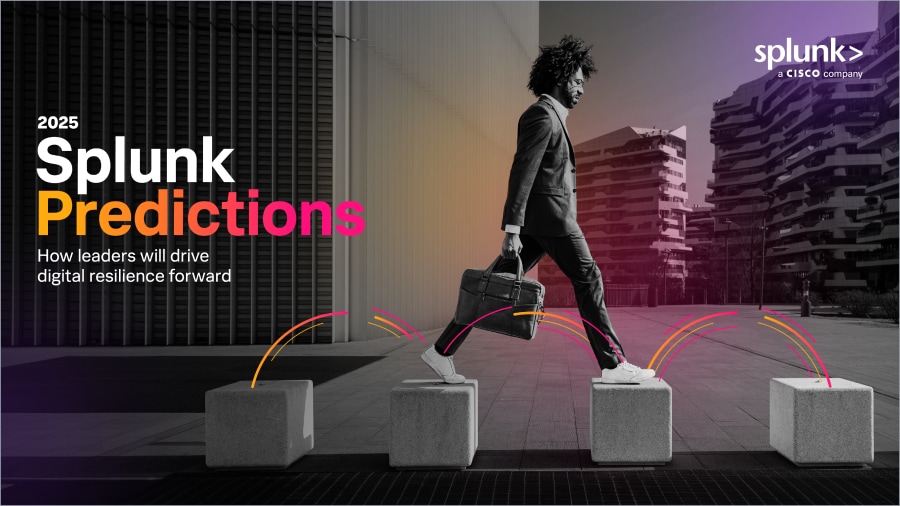The Dunning-Kruger Effect Explained

The Dunning-Kruger Effect describes a cognitive bias where individuals with minimal knowledge or skill in a specific domain tend to overvalue their capabilities. At the same time, those with more expertise often underestimate their competence.
Understanding this effect is particularly useful in the workforce. Whether in tech or another industry, recognizing our own limitations — and those of others — while embracing feedback and the pursuit of knowledge can lead to more accurate self-assessment, improved decision-making, and, ultimately, tremendous success and fulfillment.
Let’s dig in.
Understanding the Dunning-Kruger Effect: Overconfidence vs. reality
This effect was first identified and explored in 1999 by David Dunning and Justin Kruger, researchers who found that participants scoring in the bottom quartile grossly overestimated their ability and performance in areas such as humor, grammar, and logic. On the other hand, those scoring in the top quartile slightly underestimate their performance.
This effect leads to a paradox where:
- The least qualified individuals are the most confident in their abilities.
- The most qualified individuals may be less optimistic because they are more aware of what they don’t know.
Research suggests that the Dunning-Kruger Effect arises because those with limited knowledge lack the expertise needed to evaluate their abilities accurately. Meanwhile, knowledgeable individuals are more aware of the nuances and complexities of a subject, leading them to be more critical of their own performance.
This underscores the intersection of competence, self-awareness and continuous learning, particularly in fields where objective measures of ability are difficult to ascertain.
Why does the Dunning-Kruger Effect occur?
The psychological basis for the Dunning-Kruger Effect is rooted in cognitive biases and limitations in self-assessment abilities. Several fundamental psychological mechanisms contribute to why this effect occurs.
Factors on the “least qualified individuals” side
- Illusory Superiority is a cognitive bias where individuals overestimate their qualities and abilities relative to others. It leads to an inflated sense of self-assessment, where people believe they are better than they actually are. This is partly because humans generally like to keep themselves in a positive light, a phenomenon known as the “above-average effect.”
- People often mistake familiarity for mastery and expertise. Just because someone has been exposed to a task or subject for an extended period doesn’t necessarily mean they have achieved high competence. This confusion leads to overestimating one’s abilities, as the individual equates experience with expertise.
- Correcting misjudgments isn’t easy. Without accurate feedback, individuals may be unable to correct their misjudgments about their abilities. Plus, without self-reflection, people may not critically evaluate their skills and knowledge, perpetuating the cycle of overestimation.
Factors on the “most qualified individuals” side
On the other end of the spectrum, individuals with true expertise are more aware of the nuances and complexities of a particular domain. This awareness leads to a more accurate and often more critical self-assessment.
Experts understand the vastness of what can be known, making them more likely to underestimate their abilities or assume that easy tasks may also be easy for others.
Cultural factors
Cultural norms and social environments also play a role in shaping self-assessment:
- In cultures that emphasize modesty, the Dunning-Kruger Effect might be less pronounced.
- In environments that reward overconfidence, the DK effect may be exacerbated.
The Dunning-Kruger Effect highlights the interplay between cognitive biases and social influences in shaping how we perceive our abilities. To counteract these natural tendencies we all have, we can instead focus on feedback, education, and a culture of humility and continuous learning
How to identify the Dunning-Kruger Effect
Identifying the Dunning-Kruger Effect requires keen observation of oneself and others and recognition of signs of overestimating or underestimating abilities. Awareness of these patterns helps mitigate the effect and foster a more accurate self-assessment and understanding of competencies.
Signs you might recognize in yourself
- Overestimation of knowledge or skills. Believing you know more than you do about a subject or can perform tasks better than you actually can.
- Resistance to feedback. Disregarding constructive criticism or advice from more experienced individuals.
- Failure to recognize expertise in others. A tendency to overlook or undervalue the skills and knowledge of experts, which can stem from an inability to judge skill levels that surpass one’s own accurately.
- Frequent surprise at negative outcomes. You regularly find yourself surprised or confused by negative outcomes or feedback because you expected your skills or knowledge to produce better results.
- Difficulty with learning new skills. You may experience frustration or reluctance when learning new skills because it challenges your self-perception of competence and requires confronting your own limitations.
- Overreliance on intuition. Relying heavily on gut feelings or intuition in areas where you lack formal training or in-depth knowledge, often at the expense of seeking evidence or expert opinions.
- Simplifying complex problems. Oversimplifying complex problems or challenges, underestimating their difficulty, and thus overlooking the need for in-depth analysis or expert input.
Recognizing these symptoms in yourself can be challenging. It requires self-reflection and humility. Cultivating an openness to learning, actively seeking feedback, and developing an awareness of the complexities of different fields help counteract these tendencies.
Signs of the Dunning-Kruger Effect in others
- Overconfidence in specific areas. Observing someone display unwarranted confidence in their abilities, particularly in areas the person actually has limited experience or expertise.
- Frequent or repeating mistakes. Noticing frequent mistakes or a lack of understanding in tasks where someone claims to have proficiency.
- Dismissal of expertise. Seeing someone undervalue the opinions or advice of recognized experts in the field.
- Unwarranted assertiveness in discussions. Displaying a high level of confidence and assertiveness in discussions or debates on topics where their knowledge or expertise is actually limited.
- Dismissal of new information. Showing reluctance or outright refusal to consider new information, perspectives, or evidence that contradicts their existing beliefs or understanding.
- Resistance to training or development opportunities. Showing little interest in training programs, workshops, or other learning opportunities, possibly because they don’t see the need for further development.
Recognizing these symptoms in others can help provide constructive feedback and support to encourage a more accurate self-assessment and promote continuous learning and improvement. However, it’s important to approach such situations with sensitivity and empathy, as confrontation may reinforce their defensive behaviors.
Mitigating the DK effect
Mitigating the Dunning-Kruger Effect is not about eliminating confidence but instead aligning confidence with actual competence. Through self-awareness, continuous learning, and a supportive environment, individuals develop a more accurate self-assessment and strive toward personal and professional growth.
Here are several approaches individuals and organizations can take.
For Individuals
Actively seek feedback. Regularly solicit feedback from peers, supervisors, and mentors. Constructive criticism is crucial for understanding your strengths and weaknesses.
Embrace lifelong learning. Acknowledge that learning is a never-ending process. Engage in continuous education through courses, workshops, and reading to expand your knowledge and skills.
Cultivate self-awareness. Practice self-reflection to better understand your abilities and limitations. Tools like journaling, meditation, or even psychological assessments can provide insights into your behavior and thought processes.
Set realistic goals. Establish achievable goals that stretch your abilities but are within reach. Meeting these goals provides a more accurate assessment of your skills and encourages growth.
Compare standards, not peers. Use objective standards and benchmarks to gauge your skills instead of comparing yourself to those around you. It can help in accurately assessing your abilities and progress.
Embrace humility. Recognize that no one is perfect, and everyone has room for improvement. Being open to learning from others, regardless of their level of expertise, can mitigate overconfidence.
For organizations
- Create a culture of feedback. Foster an environment where feedback is regularly given and received. This includes both positive reinforcement and constructive criticism aimed at helping others grow.
- Promote team learning. Encourage teams to learn together through group training sessions or collaborative projects. This helps individuals gauge their skills relative to objective criteria and learn from peers.
- Provide access to resources. Make learning resources readily available and encourage employees to use them. This includes subscriptions to online courses, in-house training programs, or a library of relevant literature.
- Encourage mentorship programs. Pair less experienced individuals with mentors who can provide guidance, feedback, and support. This relationship helps mentees develop a more accurate understanding of their abilities and growth areas.
From overestimation to enlightenment
The Dunning-Kruger Effect represents a significant personal and professional development challenge, highlighting the intricate dance between confidence, competence, and self-awareness. By understanding its symptoms and underlying psychological mechanisms, you can take proactive steps to lessen its impact, fostering a culture of continuous learning and humility.
Resources to mitigate the DK Effect
Ready to counter the Dunning-Kruger Effect? Learn more and check out these resources:
- Organizational Change Management Models: 4 Models for Driving Change
- Kotter’s 8 Steps for Leading Change in Organizations
- Change Management in IT, ITIL, and ITSM
- Goodhart’s Law: Measuring The Right Things
- Outputs vs. Outcomes
- Processes vs. Practices
Earning conferences and attending conferences and events continue to be the best places to sharpen your skills. Here’s some ideas:
See an error or have a suggestion? Please let us know by emailing splunkblogs@cisco.com.
This posting does not necessarily represent Splunk's position, strategies or opinion.
Related Articles
About Splunk
The world’s leading organizations rely on Splunk, a Cisco company, to continuously strengthen digital resilience with our unified security and observability platform, powered by industry-leading AI.
Our customers trust Splunk’s award-winning security and observability solutions to secure and improve the reliability of their complex digital environments, at any scale.




